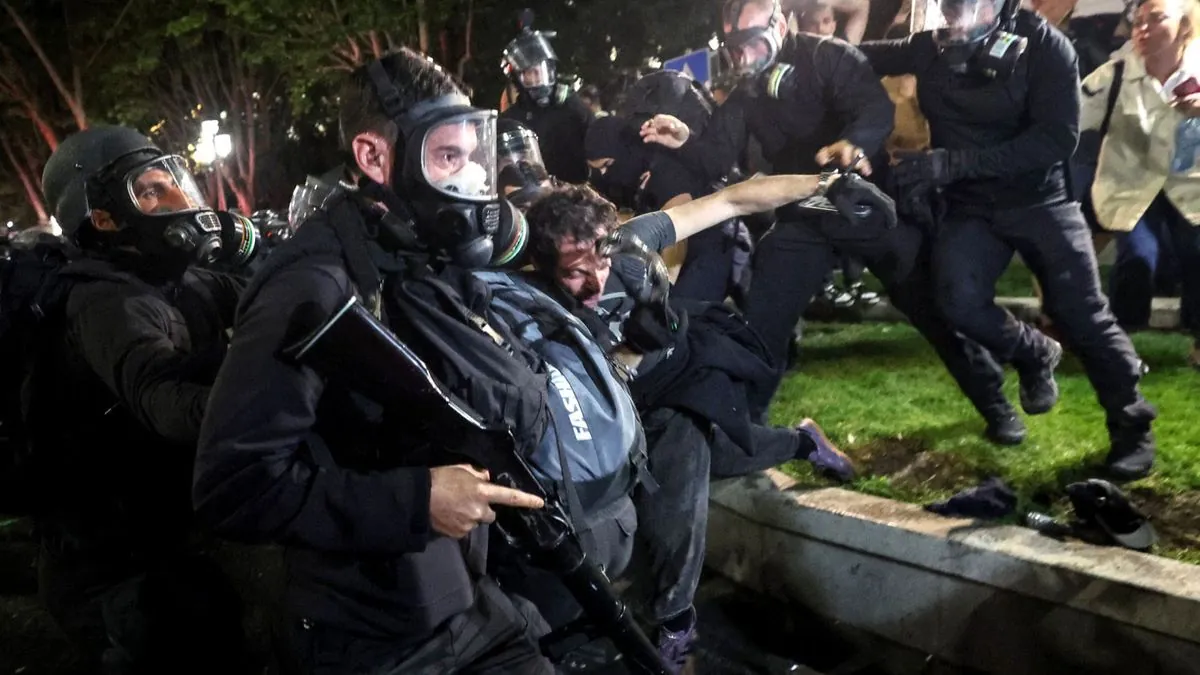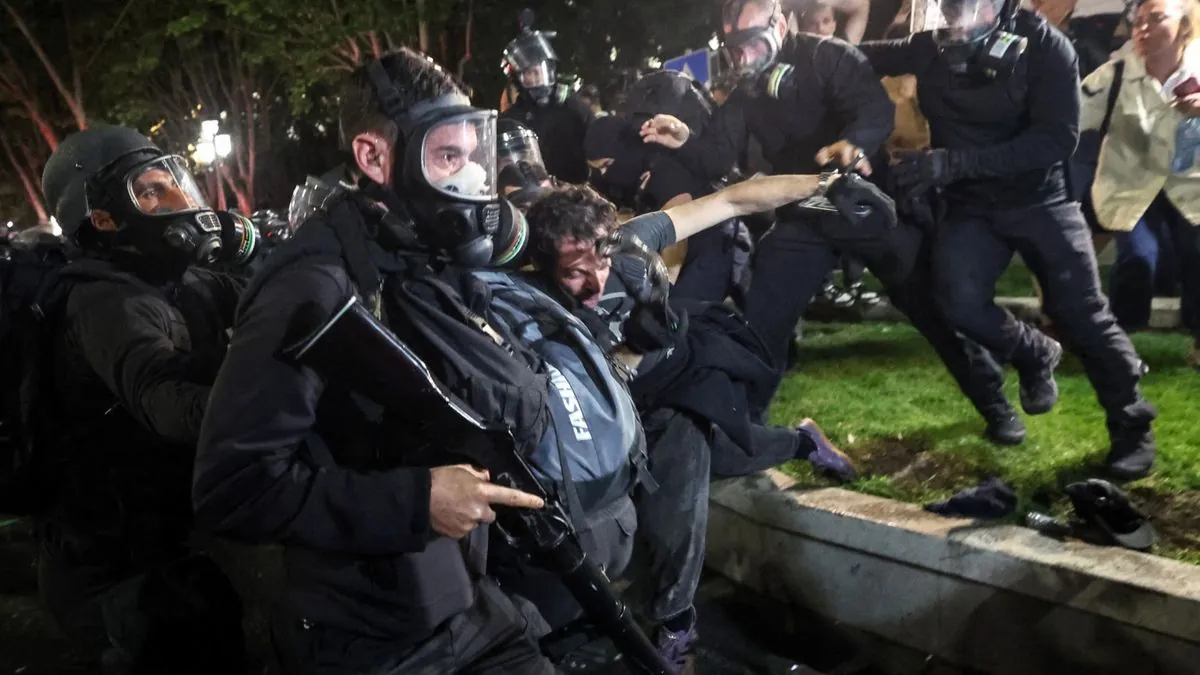US Sanctions Georgian Officials Over Protest Crackdowns
The United States has imposed sanctions on Georgian officials and far-right figures for their involvement in violent suppressions of protests against a controversial "foreign agent" law. The measures include financial sanctions and visa bans.

The United States has taken decisive action against several Georgian individuals, imposing sanctions and visa restrictions in response to the violent suppression of protests earlier this year. These measures, announced on September 16, 2024, target government officials and members of Georgia's pro-Russian far-right movement.
The sanctions come in the wake of large-scale demonstrations that erupted in Georgia during the spring of 2024. These protests were sparked by the passage of a controversial "foreign agent" law in May, which faced criticism from both domestic and international observers, including US officials, who viewed it as authoritarian and potentially influenced by the Kremlin.
Zviad Kharazishvili, Chief of the Special Task Department, and his deputy, Mileri Lagazauri, are among those facing financial sanctions. The US Treasury Department alleges that these officials oversaw security forces responsible for violently suppressing peaceful demonstrations. According to the Treasury, the violence included brutal beatings of protesters and opposition politicians.

The sanctions also extend to Konstantine Morgoshia, founder of media company Alt-Info, and associated media personality Zurab Makharadze. These individuals are accused of spreading disinformation, hate speech, and threats.
In addition to the financial measures, the US State Department has imposed visa restrictions on over 60 Georgians, including government officials, business leaders, and law enforcement members, along with their family members. These individuals are accused of undermining democracy in Georgia.
"The United States is committed to promoting democracy and human rights globally. These actions demonstrate our resolve to hold accountable those who undermine democratic processes and violate fundamental freedoms."
This recent action follows previous visa bans imposed on members of the Georgian Dream party, parliamentarians, and other individuals involved in the controversial law and subsequent protests.
The dispute surrounding the "foreign agent" law is seen as a critical juncture for Georgia, a country that has been among the more pro-Western of the former Soviet republics for the past three decades. The situation has raised concerns about whether Georgia will maintain its Western orientation or shift closer to Russia.
Georgia, which gained independence from the Soviet Union in 1991, has a complex relationship with both the West and Russia. The country has been seeking NATO membership since 2005 and signed an Association Agreement with the European Union in 2014, demonstrating its aspirations for closer ties with Western institutions.
However, Georgia has also faced ongoing tensions with Russia, including a brief war in 2008 over the regions of South Ossetia and Abkhazia. These territorial disputes and concerns about Russian political influence continue to shape Georgia's geopolitical landscape.
The Georgian Dream party, which controls the parliament, has defended the "foreign agent" law as necessary for ensuring transparency in foreign funding of NGOs and protecting national sovereignty. However, critics argue that the law could be used to stifle civil society and limit foreign support for democratic institutions.
In response to these developments, Washington has launched a review of its bilateral cooperation with Georgia. This review reflects the US's long-standing concerns about the law and its potential impact on Georgia's democratic trajectory.
As Georgia navigates these complex political waters, the country's rich cultural heritage and strategic location continue to make it a significant player in the region. With a history of winemaking spanning over 8,000 years and a unique linguistic and cultural identity, Georgia remains an important crossroads between East and West.


































